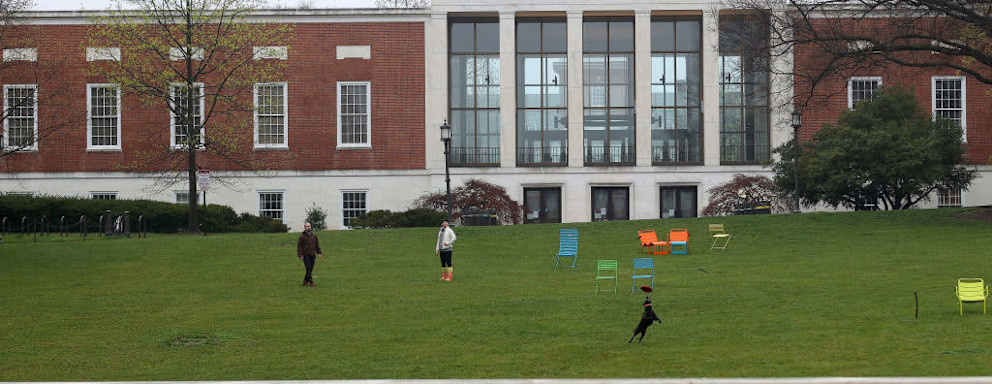Johns Hopkins Reinstates Standardized Testing
 Credit: Rob Carr / Staff / Getty Images News / Getty Images
Credit: Rob Carr / Staff / Getty Images News / Getty Images- Johns Hopkins University has reinstated standardized test requirements.
- Students applying in fall 2025 must submit SAT or ACT scores, while those applying this fall are encouraged to do so.
- Hopkins says test scores more accurately predict academic success and enable disadvantaged students to demonstrate their potential.
- The decision follows similar policy changes at Ivy League colleges.
Johns Hopkins University has become the latest high-profile college to reinstate standardized testing.
Beginning in fall 2025, students applying to the university’s Krieger School of Arts and Sciences and Whiting School of Engineering will be required to submit either SAT or ACT scores. For this upcoming fall cycle, students are “encouraged” to submit scores but aren’t required to do so.
Like many universities, Hopkins went test-optional in 2020 as a result of the COVID-19 pandemic, which limited access to testing facilities.
The university’s decision to reinstate testing comes after yearlong internal deliberations on the matter.
In a report of its findings and recommendations, Hopkins calls SAT scores a “significant predictor” of academic performance at the university, more so than the high school grade point average (GPA). During the test moratorium, first-year students and sophomores who didn’t submit scores had lower GPAs than those who did submit scores.
These findings align with those of a study from Opportunity Insights, a research group based at Harvard University, which found that standardized test scores have more “predictive power” for academic success in college than high school GPAs do, particularly at highly selective institutions such as Johns Hopkins.
In addition, the Hopkins report cites evidence that less-advantaged students with “very favorable test scores” have opted not to submit them.
Several first-generation, low-income, and underrepresented minority students chose to “suppress their test scores,” the report says, “rendering their applications less compelling than they might have been.” Some of those students scored 1500 or above.
Perhaps it comes as no surprise, then, that during the testing period, the university experienced only small increases among these underrepresented groups.
For context, the report mentions a comprehensive study showing that test-optional policies have led to short-term increases in applications but have had “no effect on other measures of quality and selectivity and no effect on diversity.”
Hopkins’ decision follows similar policy changes by several Ivy League schools.
Earlier this year, Dartmouth College became the first Ivy to reinstitute standardized testing, citing an internal study indicating that SAT and ACT scores can help flag high-achieving applicants from middle- and low-income backgrounds, much like Hopkins discovered.
Shortly thereafter, Yale University did likewise, arguing that standardized tests can actually bolster diversity, not hinder it, by enabling students from under-resourced backgrounds to demonstrate their academic potential.
Brown University soon hopped aboard the testing bandwagon, offering the same rationale, as did Harvard University, which now requires the SAT or ACT tests or, alternatively, Advanced Placement or International Baccalaureate exam scores.
Meanwhile, Columbia University announced it will remain permanently test-optional, while the University of Pennsylvania signaled its intent to extend its testing moratorium for at least another year.
What differentiates Johns Hopkins from this group is its policy on legacy admissions, which it abandoned in 2014.
“Legacy preference is immobility written as policy, preserving for children the same advantages enjoyed by their parents,” Hopkins President Ronald J. Daniels wrote in The Chronicle of Higher Education.
“It embodies in stark and indefensible terms inherited privilege in higher education and has compromised college and university admissions for decades. Moreover, it has drained the public trust in colleges and universities at a moment when the public is seething with rage at the seeming illusion of the meritocratic ideal and widening inequality.”
The year before changing its policy, Hopkins enrolled 8.5% legacies and 8.1% first-generation students in its entering class. In 2021, only 3.7% were legacies, and 17.8% were first-generation.
Now the university is banking on the resumption of standardized tests producing similar results.